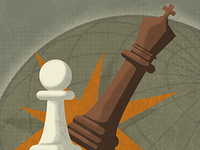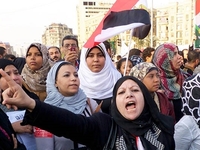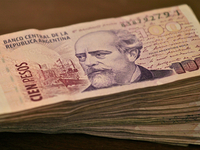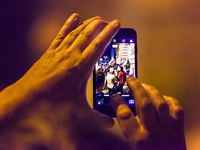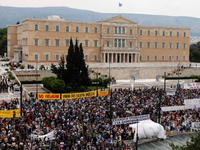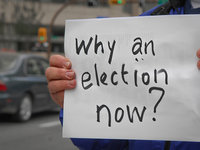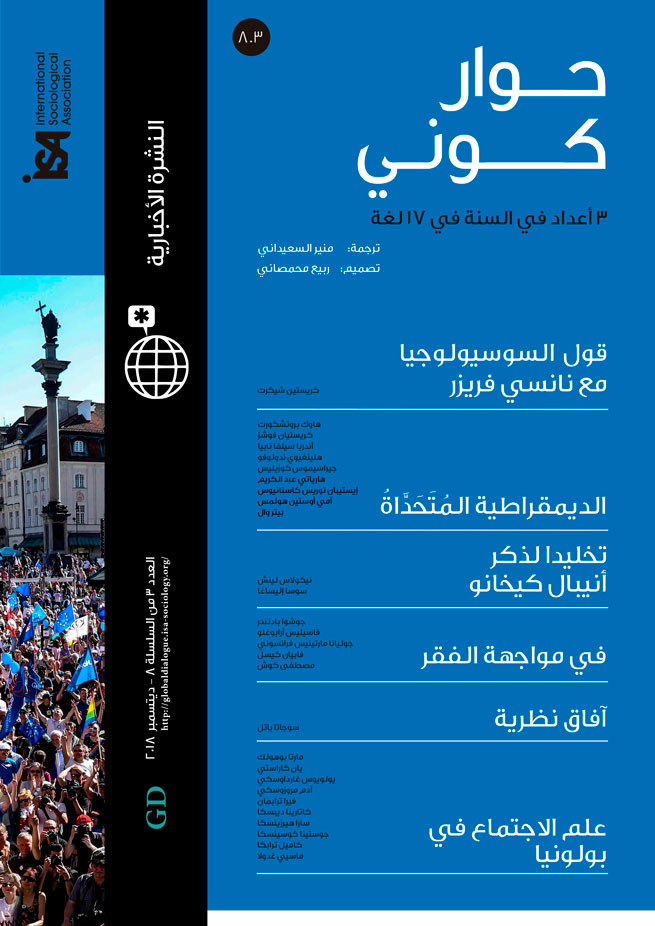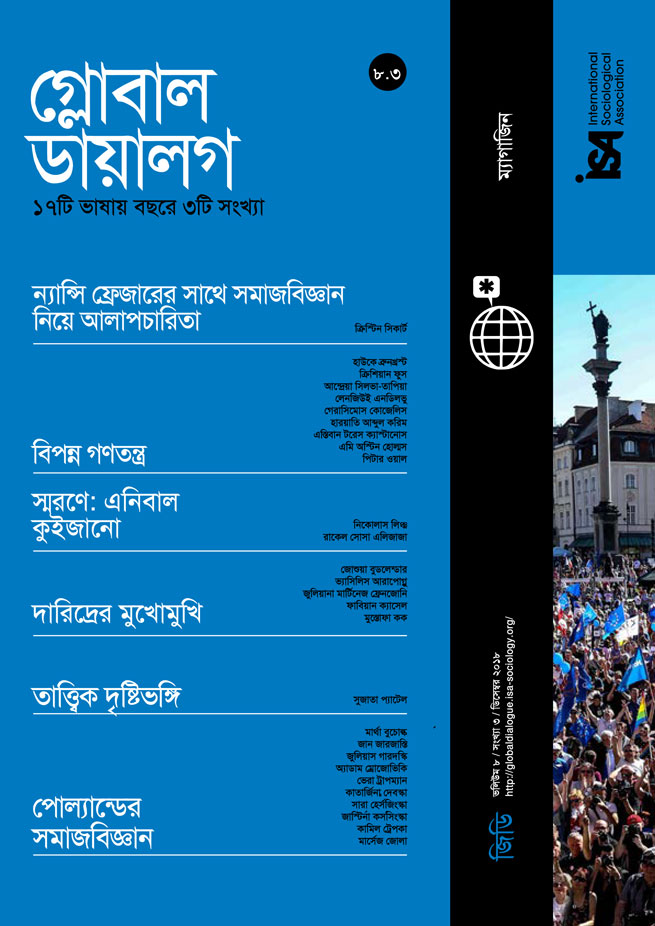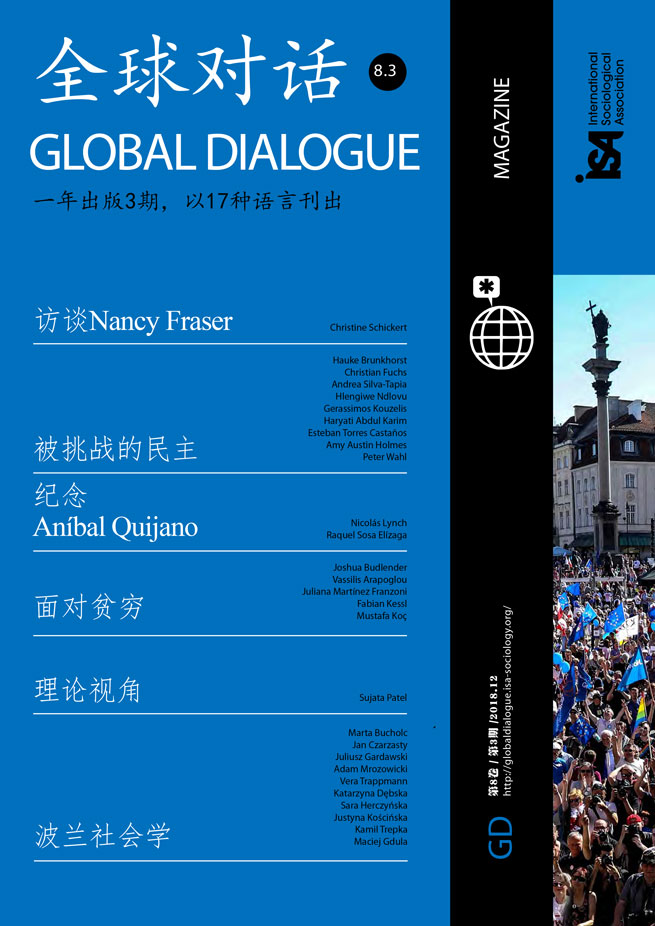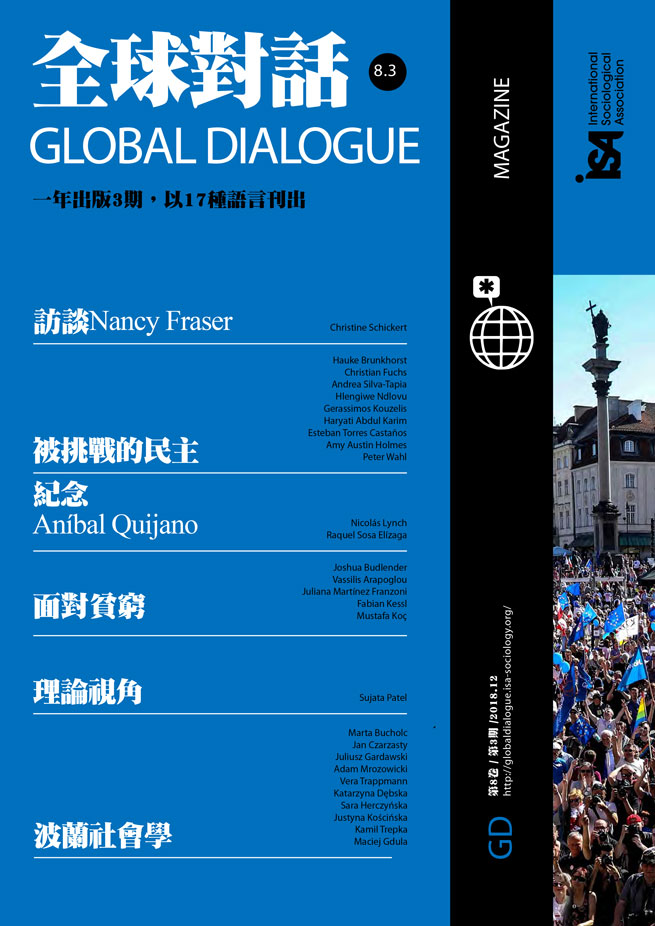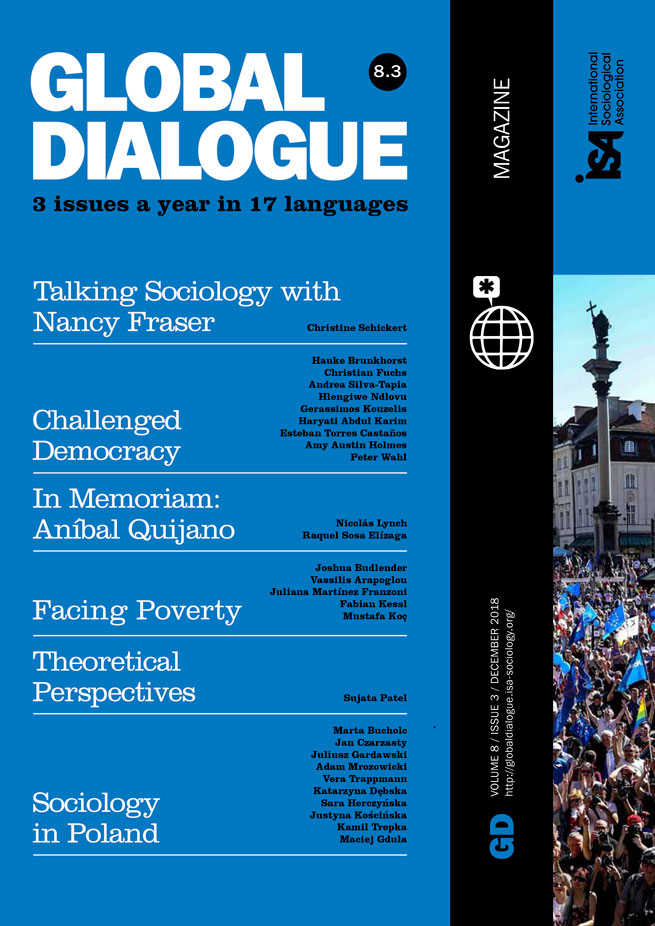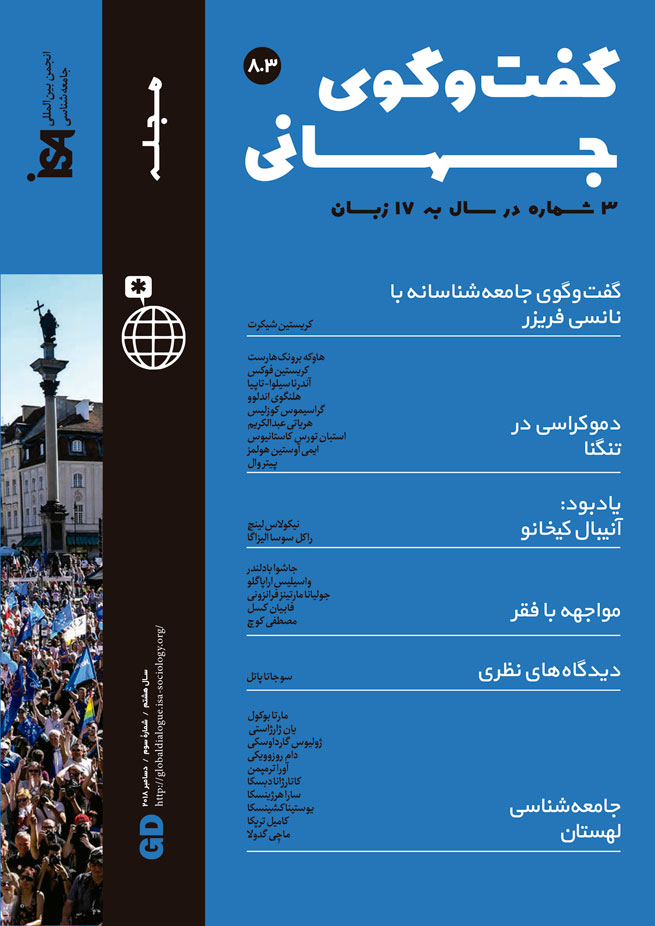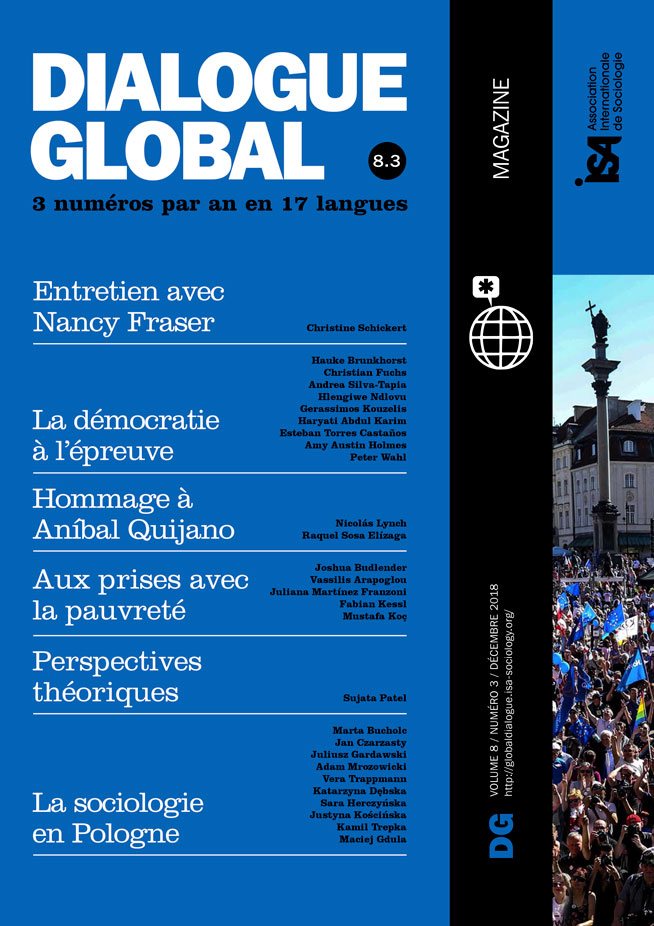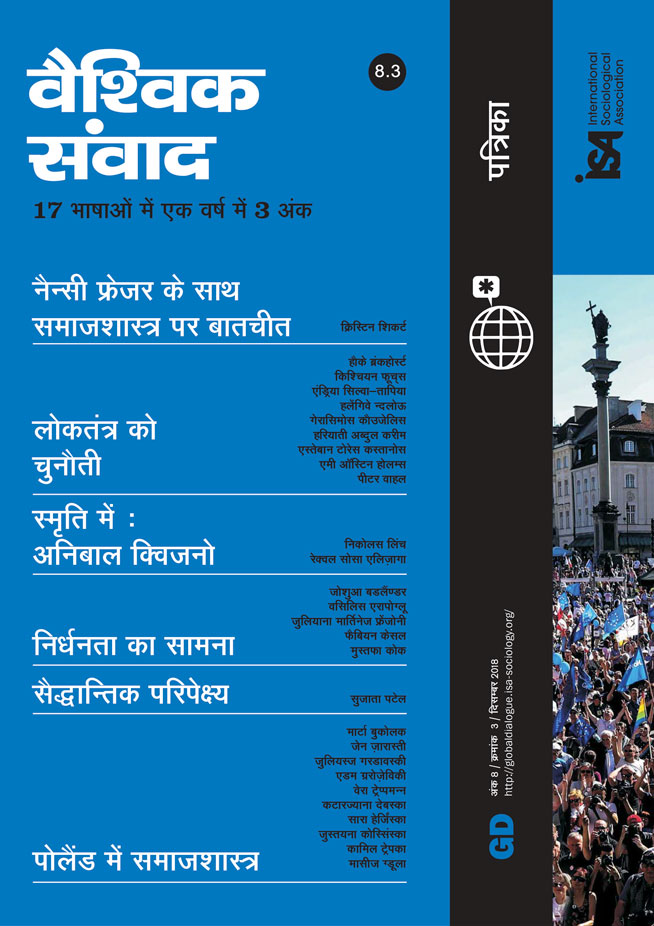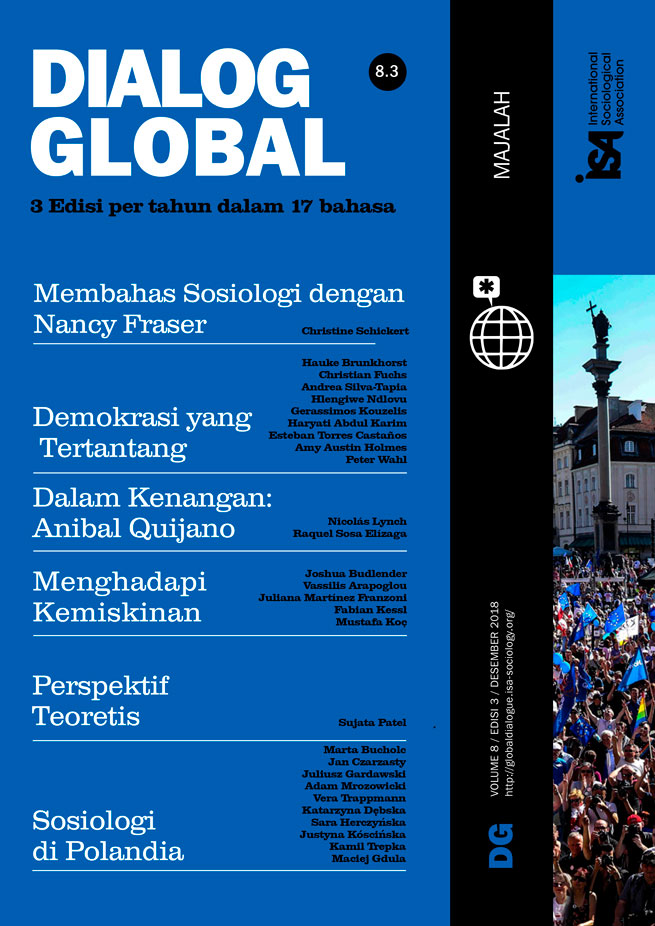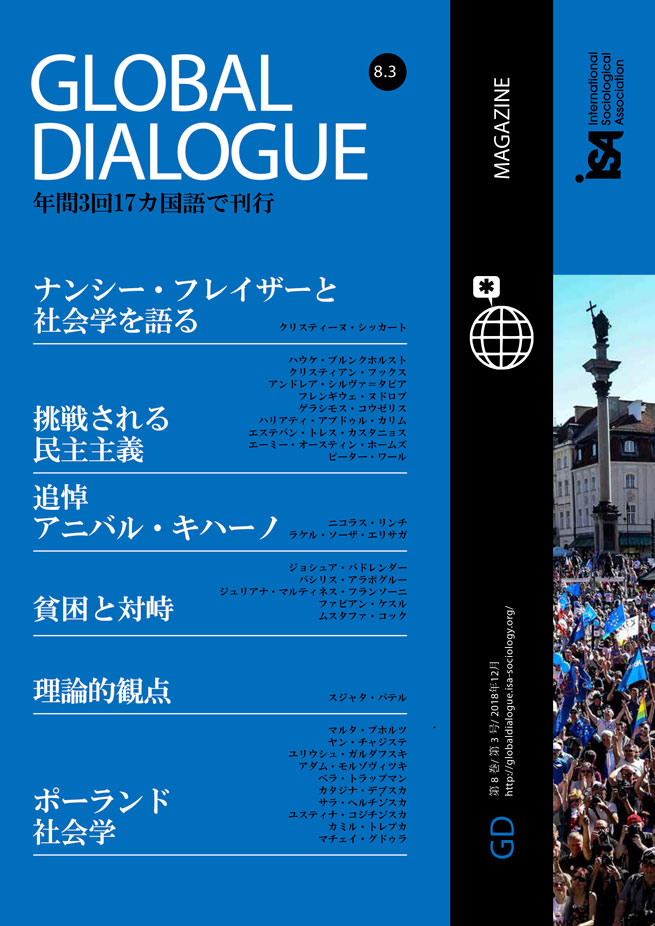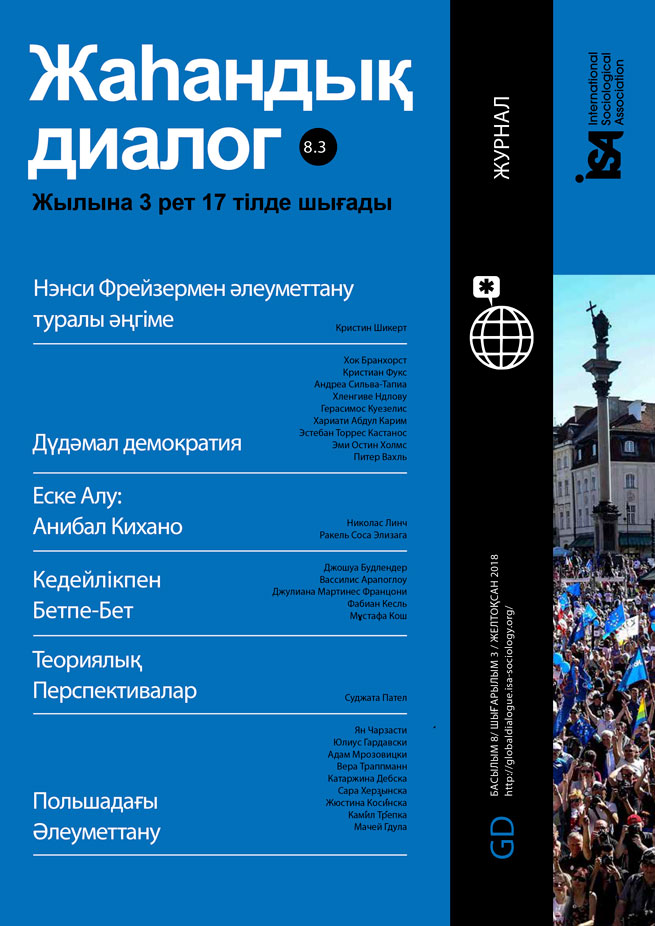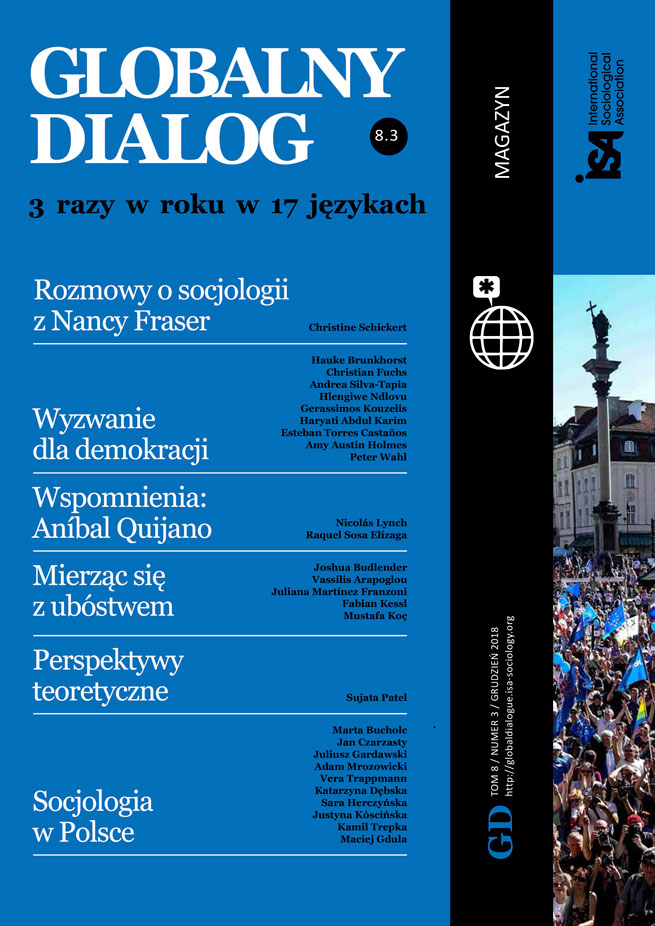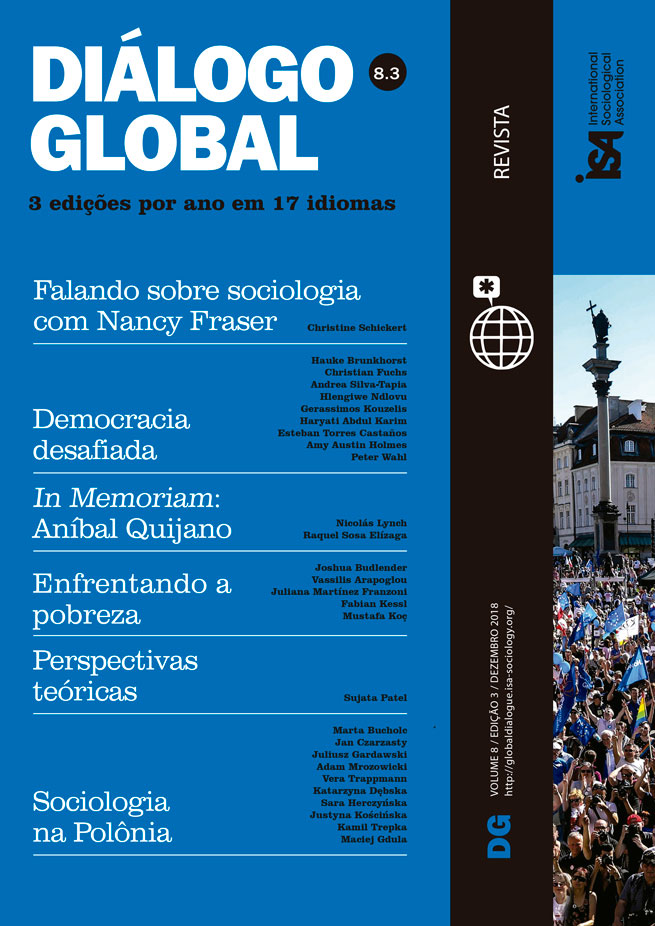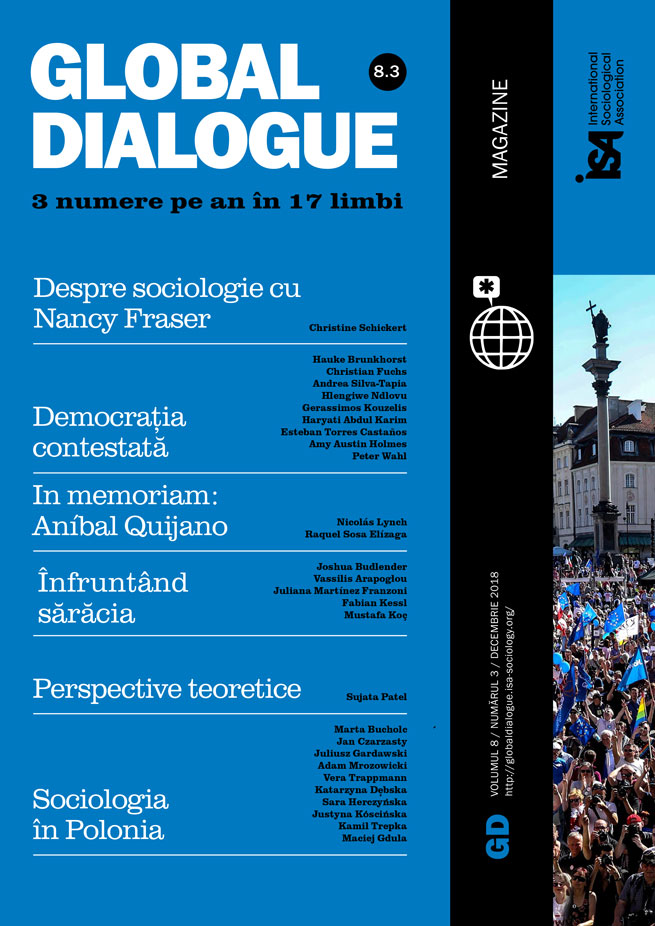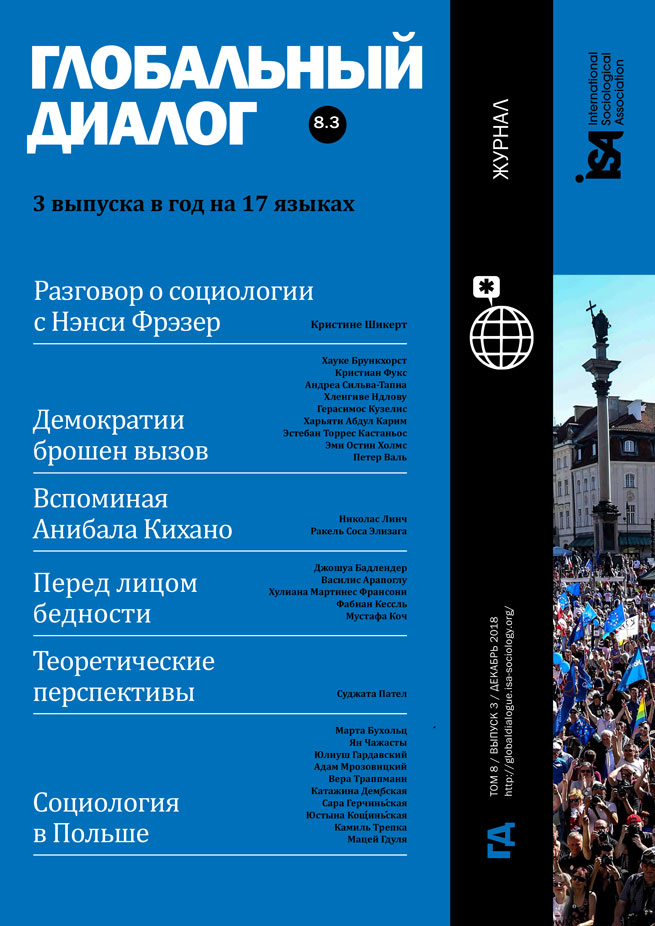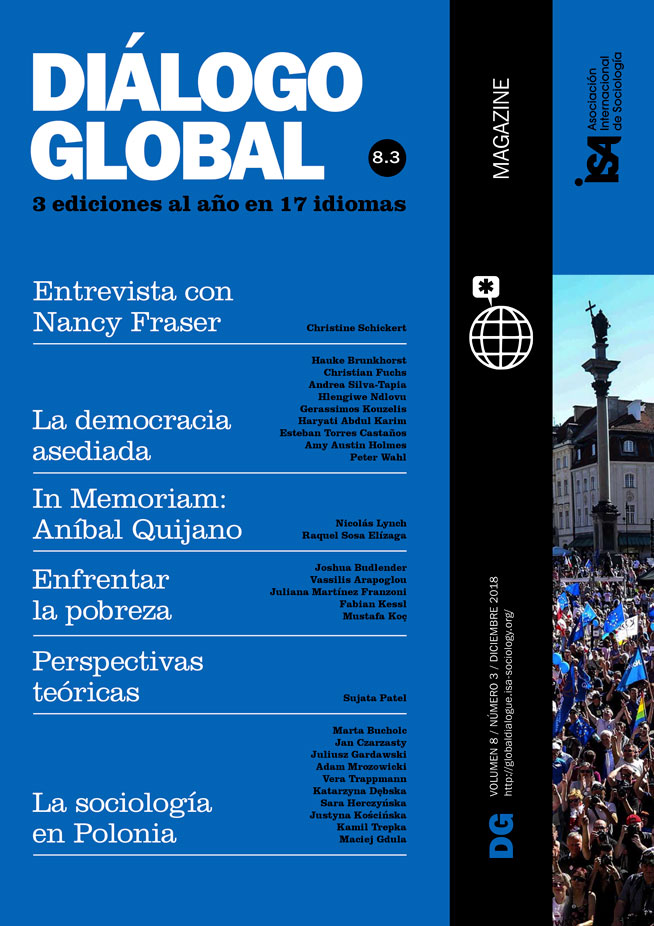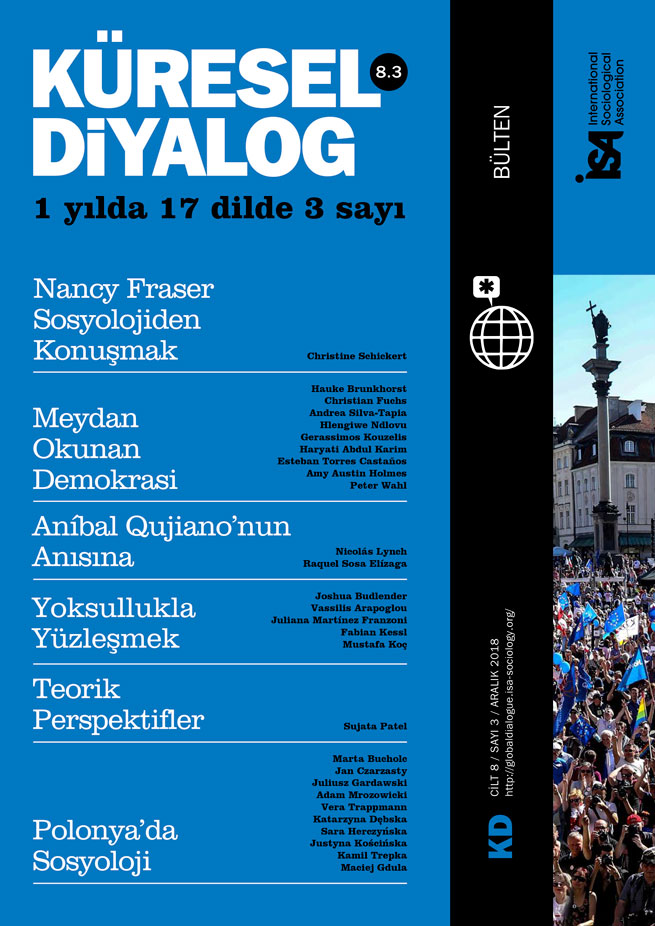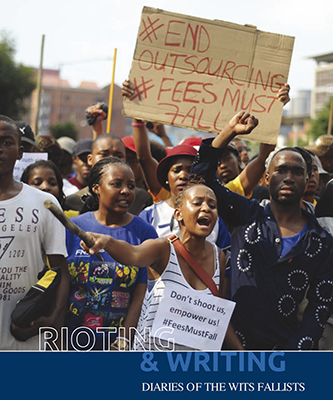In recent years, South Africa has been gripped by a student movement unprecedented in its militancy, arguably, since the 1976 Soweto students uprising. The #FeesMustFall movement emerged in 2015 and continued into 2016. The demands were forged around access to free quality education, and the transformation and decolonization of institutions of higher learning. This movement spanned all public universities and was characterized by a unique alliance between students and outsourced university workers. At the center of these struggles was a direct confrontation with the failures of democracy and the fallacy of the idea of a “rainbow nation” sold to South Africans after 1994.
Although the concept of democracy has diverse interpretations that include democratically elected governments, free and fair elections, and the exercise of diverse human and individual rights, to many South Africans the meanings of democracy are deeply rooted in historical exclusion of the majority population. In addition to centuries of slavery and colonialism, there were 46 years of fighting a racist apartheid system that deliberately segregated and excluded black people from sociocultural spaces and economic opportunities. Black South Africans were looking forward to concrete meanings of democracy. Most importantly, the idea of a “rainbow nation” as coined by one of the struggle’s icons, Bishop Desmond Tutu, suggested that with apartheid gone, racially divided South Africans would become one nation with equal opportunities to sociocultural and economic resources.
The #FeesMustFall movement was/is a struggle built around the realization that democracy was a farce and the rainbow nation a myth. Although most historically white institutions like the University of the Witwatersrand (Wits) and the University of Cape Town (UCT), among others, pride themselves on having transformed the student population by increasing the number of black students, this is far from reality. These two universities still fall amongst the most expensive universities in the country with deep-rooted cultural and epistemic violence. Moreover, while the number of black students have increased, institutions of higher learning continue to systematically exclude students from poor backgrounds socially, geographically, culturally, and economically.
In South Africa, it was expected that, after 1994, previously excluded groups would benefit from the democratic dispensation; the main liberation party, the African National Congress (ANC), had in their slogan “a better life for all.” People expected their lives to improve in all spheres – including access to free quality education as proposed by the Freedom Charter, access to decent housing, water, electricity, employment opportunities, and sanitation – as outlined in the Reconstruction and Development Program (RDP) policy document. The waves of service delivery-related protests that wrecked black townships after 1994, violence within the labor sector such as the Marikana massacre of 2012, and the #FeesMustFall protests, among other cases, demonstrate the South African state’s failure to provide the expected outcomes of democracy.
South African universities cannot be separated from the broader social order. To unpack the post-1994 democratic crisis, it is important to revisit the negotiated transition of South African democracy, like other negotiated independences across Africa. Negotiation simply meant the strategic repositioning of negotiating parties disguised as a desperate effort to achieve a “peaceful transition.” This resulted in black South Africans attaining only political power to exercise their right to vote and to organize – a right that continues to be threatened by the post-1994 state violence. On the other hand, economic power and strategic resources such as land, banks, and mines continued in the hands of the previous owners – perpetuating the domination of a white supremacist system. This continues to exclude almost 80% of the black population from the economy. Speaking about democracy in post-1994 South Africa therefore becomes impossible without confronting the structural economic inequalities.
The #FeesMustFall movement emerged to confront questions of exclusion and to demand equal access to free quality education, transformation, and decolonization of the academic project and university culture. Interestingly, historically black universities like Fort Hare University (where many of the African struggle icons were educated), among others, have been in this struggle since history can remember. However, it took another problematic phenomenon – the romanticization of historically white universities by the South African white supremacist media – to have the struggle elevated to the international spotlight, where it was portrayed as having started at Wits University. Most importantly, #FeesMustFall came a few months after the #RhodesMustFall movement at UCT was already raising issues of transformation and decolonization of the curriculum and broader higher education system. Inextricably linked to the project of decolonization, these struggles became part of the critique of a global project of commercialization and marketization of universities at the expense of ontological and epistemological advancement.
Although historically white institutions claim to have transformed in terms of student population, structural systematic exclusion continues to distribute inequalities along racial lines. Exorbitant fees mean that those who can afford to pay – predominantly white advantaged students and a few middle-class blacks – will have access while most black students are systematically excluded – defeating the notion of a rainbow nation. Furthermore, the academic staff – both international and South African – remains white, while the academic curriculum remains predominantly Eurocentric. This creates a mismatch and cultural clashes. The failure by most academic staff to adopt Afrocentric methods of ontological and epistemological knowledge production continues to pose a challenge for majority black students from poor townships.
The #FeesMustFall movement emerged to confront the failures of the democratic dispensation to achieve concrete democracy and to realize the dream of a rainbow nation. Although the movement posed a mega challenge to universities and the state, it also had its own challenges. In its earliest stages the movement was characterized by unity across political affiliations, race, and class divides. However, from the onset, it suffered from lack of internal democracy around ideological issues and questions of gender. Although the movement was started by womxn, there was a deliberate takeover by male comrades dominating the struggle and undermining womxn and gender non-conforming folks. However, womxn in #FeesMustFall were determined not to reproduce the same patriarchal system they were fighting. This divided the movement, as many accused the dissenting voices of being divisive. Furthermore, the state and universities became very repressive and violent. Riot police were deployed across campuses and given authority to exercise excessive force. Student activists were targeted, arrested, and some excluded from the university. Given the repressive nature of the undemocratic state, the movement had to retreat and explore alternative means of advancing the struggle.
The #FeesMustFall movement is currently in limbo. Some student activists are still languishing in prisons and some attending court cases. Although the South African state is progressing towards rolling out free education for the poor, the struggle for free quality and decolonized education continues. Democracy remains an event that took place on South African streets in the 1990s. It ended with the release of the late struggle icon Nelson Mandela and other political prisoners from Robben Island. For the majority of South Africans, democracy remains a fallacy and the rainbow nation a myth. For #FeesMustFall activists, the struggle continues, and for womxn and other marginalized bodies, democracy remains a struggle for centuries to come.
Hlengiwe Ndlovu, University of the Witwatersrand, South Africa <hlengiepn@gmail.com>
